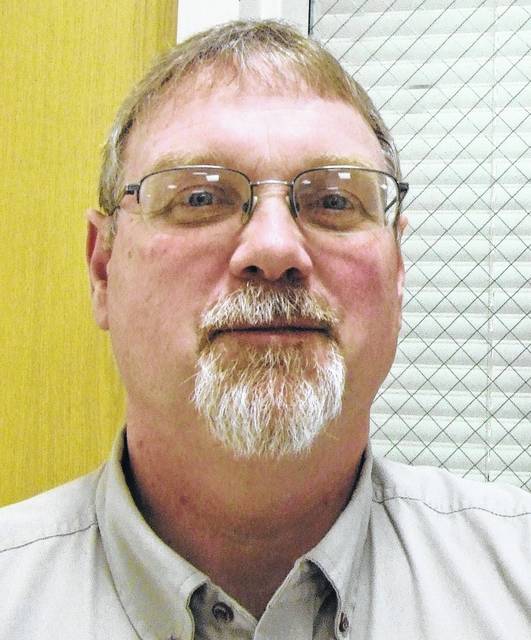
It won’t be long before spring is here. In fact, just 11 more days. That also means it won’t be long before we see a lot of farm activity in the fields as our farmers begin preparing fields and planting their crops for another growing season.
A successful farming operation has a lot of things they need to be concerned with such as costs of production, equipment needs and costs, nutrient management, disease, insect and weed management, positive weather for their growing crop, harvest, grain storage and marketing.
The one item I left out but is the foundation of production capability of any farm field is soil and the management of soil. Many of the concerns listed above can impact soil in one form or another.
A buzz word we have been hearing for a few years now as it relates to agriculture production is “Soil Health.”
According to the Natural Resources Conservation Service, soil health is defined as how well soil does what we want it to do. Healthy soil gives us clean air and water, bountiful crops and forests, productive grazing lands, diverse wildlife, and beautiful landscapes.
More farmers are managing for soil health by disturbing their soil as little as possible, growing as many different species of plants as practical, keeping living plants in the soil as often as possible, and keeping the soil covered constantly.
Soil is a living and life-giving substance, without which we would perish.
Besides environmental and ecological awareness cover crop use has been on the rise in recent years, most commonly for the preservation of soil, reduction in nutrient loss, and suppression of weeds they can provide.
On Thursday, March 21 there will be a Cover Crop Symposium at the Wilmington College Center for Science and Agriculture building, Room 149. There will be two sessions presented — the first session will be 2-4 p.m. and the second from 6:30-8:30 p.m.
The afternoon session will be more introductory in nature for those that have an interest in getting started in cover crops and the evening session will be more advanced in the utilization of cover crops.
Speakers for the day will include Jim Hershey, President of the Pennsylvania No-Till Farmer Alliance; Roger Wenning, a Cover Crop Advocate; Bob Hendershot, whom many know around Ohio as a NRCS Grassland Conservationist; and Leroy Bupp, also a Cover Crop Advocate.
Jim Hershey along with his family owns and operates their 500-acre crop and livestock farm in Elizabethtown, Lancaster County, Pennsylvania.
Hershey’s operation includes organic certified broiler chickens, swine wean to finish facility, crop management service and Harvest View Barn Wedding venue.
The crops include corn, wheat, soybeans all of which are managed in a No-Till/Cover Crop environment. Mr. Hershey has been planting into green living cover for more than seven years, and he has seen a significant improvement in the soils ability to handle drought and excessive wet conditions.
Hershey has also been doing cover crop interseeding for five years and is now commercially marketing interseeding equipment.
Jim has been speaking to many farmers and agri-business folks across Pennsylvania and surrounding states promoting No-Till, Cover Crops & Soil Health.
Leroy Bupp is a dairy farmer from New York County, Pennsylvania. His crop program includes 420 acres of corn, 230 acres of beans and 50 acres of wheat. He has been no-tilling since 1976 and planting cover crops since 1990.
Mr. Bupp has presented at dozen of producer meeting across the region discussing soil health and the soil health work he has researched on his own farm.
Whether you have been cover cropping for years or just thinking about utilization of cover crops there will information at this event for everyone.
Discussion will include some introductory information regarding cover crops. There will be information related to what cover crops work best and the selection criteria to help determine which cover crop is best suited for certain situations on farms. As well there will be information regarding the potential to raise and graze cover crops.
Hershey and Wenning will take an in-depth look into the benefits of cover crops and its relationship to soil health.
Another topic that has growing interest here in Ohio is the use cover crops with “Edge of field” management. As we know cover crops do not always fit every situation but lately there has been a growing interest to utilizing cover crops at the edge of fields to preserve soil and help protect water quality.
There will also be a farmer panel with these gentlemen as well as some local producers to discuss the overall pros and cons to cover crop utilization.
Sponsored by Wilmington College, OSU Extension Clinton County, and the Clinton Soil and Water Conservation District, this program is free and open to the public.
As stated earlier, there are two sessions; the first will concentrate more on the introduction to cover crops and the later session will get more in-depth into the management of cover crops and the benefits to soil health.
I hope to see many of you there.
Tony Nye is the state coordinator for the Ohio State University Extension Small Farm Program and has been an OSU Extension Educator for agriculture and natural resources for over 30 years, currently serving Clinton County and the Miami Valley EERA.


